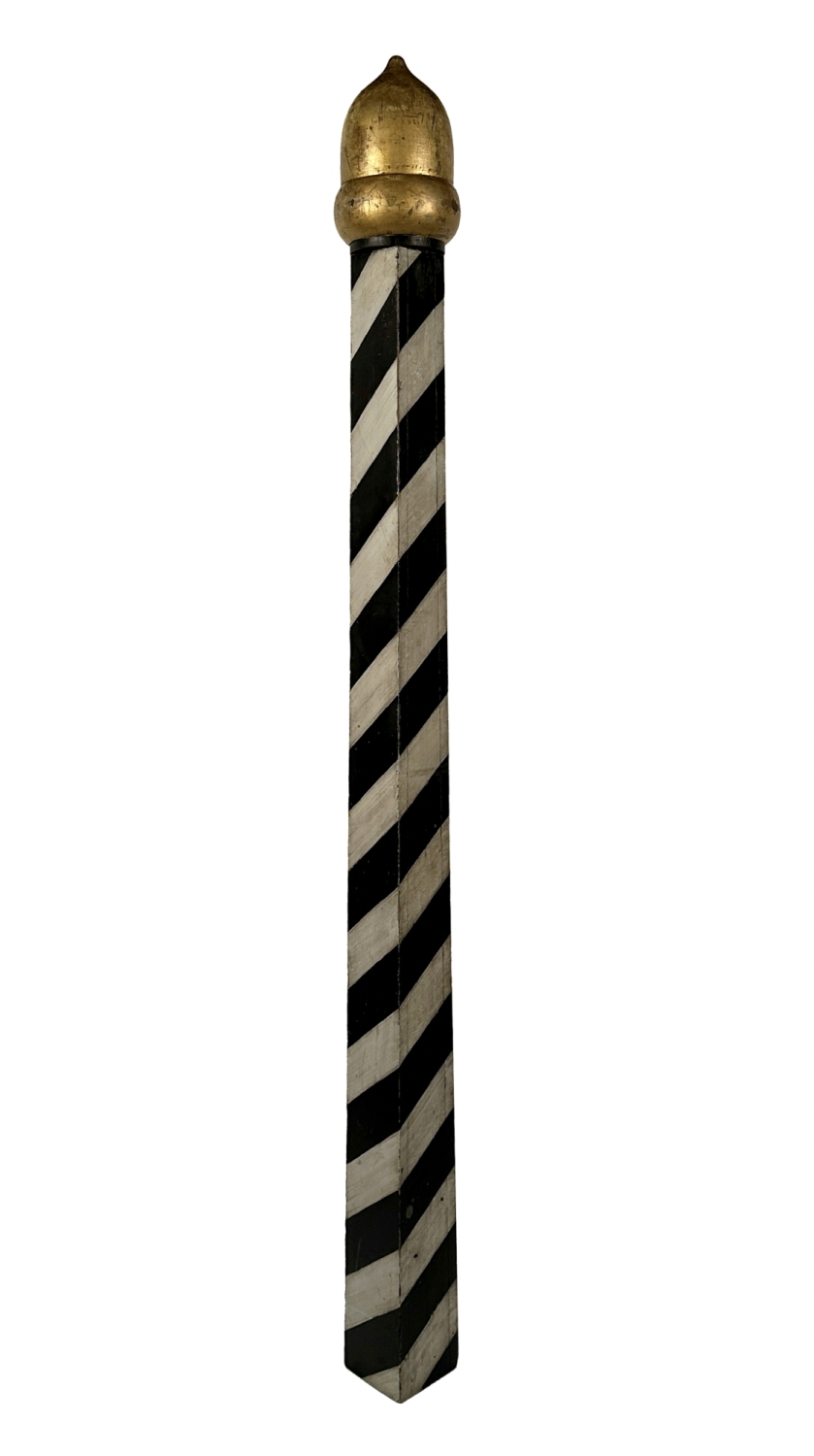
| |
LARGE, SQUARE, TAPERED, BLACK & WHITE BARBER POLE WITH A VOLUPTUOUS, GILDED, ACORN FINIAL, AMERICAN, CIRCA 1885-1900 |
| |
|
| Dimensions (inches): |
84" tall x 7.5" diameter |
| Description: |
|
This large barber pole has an unusual, square, tapering profile, made of four pine planks. A large, floor-standing example, with mortised and nailed construction, the top is adorned with a proportionately large, gilded, acorn finial, with sculptural, voluptuous form. The shaft is painted black and white, with the expected, twisting helix, spiraling upward at hard angles. The visual contrast between the square body and the round, acorn cap is punctuated by both the taper and color, as well the bold scale. This is a seven-foot, floor-standing trade sign, likely made to be displayed outdoors. It was very likely made to fit over a tapered post, from which it could be easily removed, to bring in at night or during inclement weather.
Trade signs for barbering have existed since the Middle Ages. Many barbers doubled as surgeons and performed bloodletting. Some prepared the deceased for viewings, as well as the living. Although black and white poles are rumored to be mortician’s poles among the collector community, very little information is available to substantiate that claim. I have never seen an image of a mortuary with such a pole, and little to no research exists to tie the black and white versions to barbers who offered the service. The red and white, present on most European poles, is said to reflect blood and bandages. In America, the colors are more often red, white, and blue, especially in later examples. This is rumored to represent veins and arteries, but more likely the blue fell into the color scheme as a nod to American patriotism.
Poles varied greatly, and it is unclear if a barber who offered a mix of services typically displayed more than one pole to do it. Although pairs of matching poles in two different colors are known to exist—for example, one with a red & white helix, and one black & white—these are far from the norm. With such a tiny population in any given town, and resources being what they were, it seems likely that in most cases a barber displayed only one. Because modern barber poles are sometimes black and white, though no services past shaves and hair cutting are offered, reality is a bit of a mystery.
What can be said with certainty about this black and white example is that it is both a great piece of American folk art and terrific among its counterparts. Found in New England.
Condition: The surface was moderately to significantly soiled in some areas, with sporadic areas of minor paint loss, accompanied by a couple modest instances of the same. There is minor to moderate loss of gilding and/or heavy crazing with associated losses. Successful cleaning was performed. Professional restoration was undertaken to consolidate paint and gilding loss, with great care to altering the appearance and wonderful, polychromatic surface, as little as possible.
Mount: A painted, iron mount was made so that the pole can be free-standing. The base is 11” square. |
|
|
| |
|
| Primary Color: |
black, white, gold |
|
| Earliest Date: |
1885 |
|
| Latest Date: |
1900 |
|
| For Sale Status: |
Sold |
|
| Price |
SOLD |
|
| E-mail: |
info@jeffbridgman.com |
|
 |
|
Page Views:... 2410 |
|


